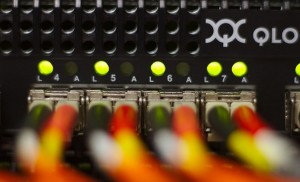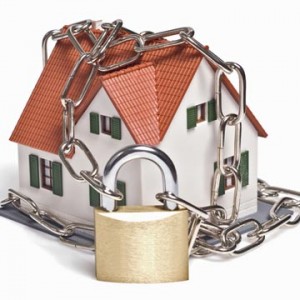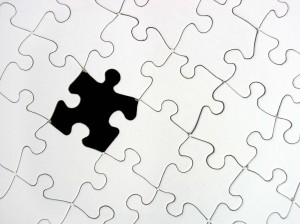Surveillance play s a vital role in any comprehensive security system. It helps authorities catch criminals and provides helpful insight into your business operations by collecting and analyzing data on a daily basis. Where and how is all of this visual and analytical data being “collected?” That is the ever pressing question for system integrators and end-users alike. Storing surveillance data can be as important to the efficiency of your security system as having the surveillance equipment itself. We are catapulting ourselves into the future with the constant evolution of technology in all aspects of life including security system components, and surveillance storage solutions are no exception, but not all are created equal.
s a vital role in any comprehensive security system. It helps authorities catch criminals and provides helpful insight into your business operations by collecting and analyzing data on a daily basis. Where and how is all of this visual and analytical data being “collected?” That is the ever pressing question for system integrators and end-users alike. Storing surveillance data can be as important to the efficiency of your security system as having the surveillance equipment itself. We are catapulting ourselves into the future with the constant evolution of technology in all aspects of life including security system components, and surveillance storage solutions are no exception, but not all are created equal.
At Perfect Connections, Inc. our licensed integrators are dedicated to providing comprehensive security system solutions that protect people and property. We have been installing security systems at business facilities throughout northern and central New Jersey for over 25 years. Our team designs system solutions that meet the needs specific to your organization. Surveillance storage is a security system component that will vary project to project and should be treated with an individualized approach.
In the not so distant past, video recordings weren’t as advanced as they are today in terms of image resolution, clarity, and noise distortion. Recordings would often be deemed unusable due to their lack of clarity and they would typically be discarded freeing up storage space for new recordings. Today, with the advent of IP cameras (internet protocol) and more advanced camera technology the recordings have become critical data sources that are considered valuable. This means more and more end-users are interested in keeping recorded data for longer periods of time. The obvious consequence is the need for more storage space.
There are many factors that affect what kind of surveillance storage solutions can and should be implemented at a facility. The size of the project, existing infrastructure, and client budget are all critical determinants as to what type of storage should be implemented. The camera type, camera quantity, compression standards, frame rates, motion detection, desired length of storage, and overall estimate of desired resolution all should be taken into account as well.
When it comes to storing surveillance data it is paramount that the integrity of the footage is not lost. Traditionally surveillance footage would be stored on a DVR (digital video recorder), but it’s limitations within a networked system make it less than ideal. With so much of the surveillance world developing around IP and network solutions it’s only natural that network storage solutions should arise. NAS (network attached storage), SAN (storage area network), and DAS (direct attached storage) are all potential methods for storing surveillance data. All have different installation requirements. Some may call for extensive cabling and a large closet to store servers, but it all depends on the size and type of project. According to Justin Schorn, vice president of product management for Aimetis, “The critical decision is choosing between a storage area networks (SAN) and network attached storage (NAS).”
The different storage devices vary in how they present information to the user and how data is accessed. The NAS devices present data in a “file system” same with DAS, whereas SAN is presented in what is referred to as “block storage.” DAS and NAS either attach directly to an existing network or the NVR (network video recorder). SAN is essentially an extension of a DAS, but provides a higher storage capacity.
DAS is typically implemented in situations when expansion is not an option, the system performance requisites are static, and shared access is not necessary. The reason being is DAS devices are limited to singular DVR or NVR applications. SAN solutions are typically used in larger camera applications that may later require scalable options. According to Lee Caswell, founder and chief marketing officer at Pivot3, “Many archivers can share the storage and the SAN platform introduces more reliability over NVR/DVR systems because there is no single point of failure.” Common applications for SAN storage include airports, casinos, and prisons.
NAS devices are typically used in smaller surveillance applications as its performance isn’t as robust as SAN. One of the advantages to NAS solutions is data can be easily accessed by anyone on the same protected network. Lee says, “The advantage of the file system on the NAS platform is that it is easier to support a hybrid storage case as some storage occurs locally on self-contained NVRs/DVRs and extended storage is sent to a specific file on the NAS.”
An additional option is to store your footage in the cloud – with a system like Eagle Eye cameras, you don’t have to worry about running out of storage space, or if your storage device is damaged or stolen. And just like traditional NVR/DVRs, your footage is accessible to you from any mobile device or computer.
Keeping high quality recorded data for longer periods of time can help local authorities with investigations and it can provide insight into your business that you otherwise wouldn’t observe. While storing recorded footage from your surveillance system is critical to your overall security, it’s important to remember that the type of storage necessary will vary depending on the project parameters. It is imperative to work with a licensed security system integrator to help evaluate security risks, the quantity of cameras needed, and how a surveillance storage system can be implemented to meet your requirements. At Perfect Connections, Inc. we are committed to providing security systems that suit your specific needs. We have been designing and installing comprehensive security systems at businesses throughout northern and central New Jersey since 1992.
If you live or run a business in Central or Northern New Jersey and would like information on any of the topics discussed above, please call 800-369-3962 or simply CLICK HERE.
Image Credit: Image by Dennis van Zuijlekom-Flickr-Creative Commons




 The images above show the difference between a parking garage being monitored by a camera with no WDR or WDR turned off on the left, and on the right the same area monitored by a camera with WDR enabled. The difference is clear as day. Why do they differ so much? The camera with the WDR enabled has two internal Charge-Coupled Devices (CCD). The two devices, or sensors, scan an image at different speeds, one low and one high, the image processor then combines the separate images producing a clearer, more balanced picture with better contrast and lighting. This process happens quickly enough to produce a stream of clear recorded footage. There are many different manufacturers that produce these WDR cameras in the market today, and not all of them use the same type of sensor and image processing combinations. The best way to ensure you are getting the best camera for your specific application is to hire a licensed security systems integrator who is educated in which camera specifications will work best in variant conditions.
The images above show the difference between a parking garage being monitored by a camera with no WDR or WDR turned off on the left, and on the right the same area monitored by a camera with WDR enabled. The difference is clear as day. Why do they differ so much? The camera with the WDR enabled has two internal Charge-Coupled Devices (CCD). The two devices, or sensors, scan an image at different speeds, one low and one high, the image processor then combines the separate images producing a clearer, more balanced picture with better contrast and lighting. This process happens quickly enough to produce a stream of clear recorded footage. There are many different manufacturers that produce these WDR cameras in the market today, and not all of them use the same type of sensor and image processing combinations. The best way to ensure you are getting the best camera for your specific application is to hire a licensed security systems integrator who is educated in which camera specifications will work best in variant conditions.

